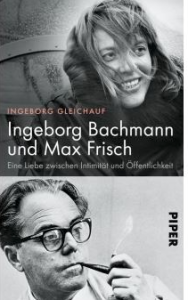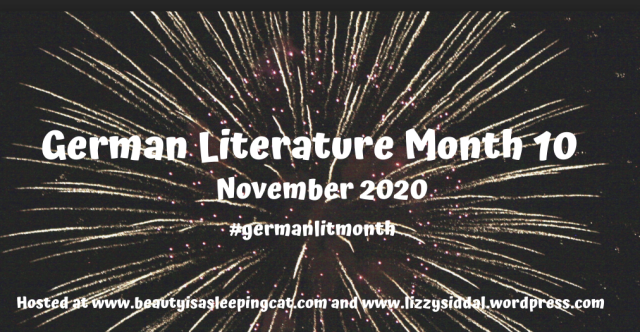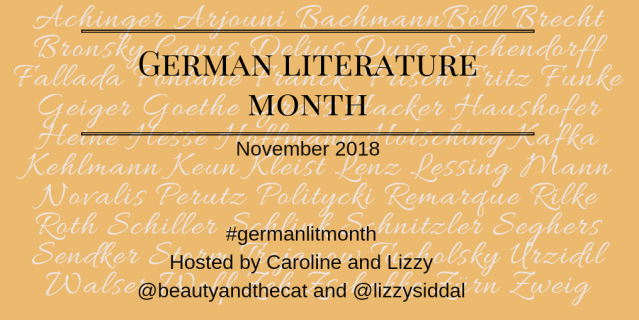
When I was in my early twenties, I went through an Ingeborg Bachmann phase and read almost everything I could find by her. I loved her poetry so much. Sometimes when you revisit a writer that you loved ten or twenty years ago, you’re in for a disappointment. But rereading Bachmann’s poetry just made me realize again that she’s one of the greatest poets of all time. Her poems are mysterious and haunting and every time you read them, another part becomes meaningful. It’s not always easy to pin down what exactly her poems are about but that is what makes them so fascinating.
Back when I first read her, I wasn’t aware that she stopped writing poetry in the early 60s. There are still a few late poems, but most of her poetic work was written before 1961, the year she published her short story collection The Thirtieth Year. In an interview, she said she stopped writing poems because she didn’t want to be one of those who’d found a way to write successful poetry and would then go on, writing the same poems over and over again. She didn’t want to imitate herself.
There is, however, another interpretation, which, is more tragic. From 1958 to 1962 Ingeborg Bachmann was in a relationship with Max Frisch. The relationship ended in 1962. Both writers never really got over the ending, as Frisch clearly states in the quote I chose as blog title. “The end, we failed it. Both of us”. While Frisch would struggle until his death to come to terms and make sense of their relationship, the end almost killed Ingeborg Bachmann. She never really recovered.
I remember being surprised, at twenty, when I read that she was in a relationship with Max Frisch. Back then, I found it hard to imagine that a flamboyant personality like Bachmann would be with someone like Frisch who comes across as rather homey. They were so very different. Frisch, who was newly separated and about to get a divorce when they met, was used to a traditional family life. Before becoming a full time writer, he would work as an architect, while his wife was a housewife. Later, he would write in his attic, while his wife would do the housework and cook. It doesn’t seem like he ever expected this of Ingeborg Bachmann, but he expected a more structured life. From the beginning, living together would prove difficult. He found Bachmann rather chaotic. But that wasn’t the only difference. The biography I read pays a lot of attention to the way they experienced their surroundings, notably the landscapes, countries, cities, they lived in. Bachmann always looked for a mirror, an echo to her soul, while Frisch could just admire a landscape, explore a city and enjoy it. They met in Paris but then moved to Frisch’s hometown Zürich. For someone who was used to live in big cities like Vienna, Paris and Rome, Zürich was a shock. Switzerland in the fifties and sixties wasn’t exactly an openminded place. People frowned upon their living together. Bachmann found Switzerland stifling. They then moved out of the city to the country, which was even worse. Finally, Bachmann decided to move back to Rome and Frisch followed her.
Now she was in her territory but still the relationship remained difficult for many reasons. Ingeborg Bachmann would travel a lot and not tell Frisch when she’d be back. She would also keep their relationship apart from other people in her life. Almost as if she was living an affair. Even though, their life together was so dufficult, Frisch wrote continuously, driving Bachmann mad with the constant noise of his typewriter. It seems it even triggered writer’s block in her.
In the end, Frisch, who was genuinely suffering because she always held him at arm’s length, left her for another, much younger woman. Ingeborg Bachmann never really recovered from this blow. She didn’t see it coming, never would have expected that he’d leave her.
It wasn’t easy to read this book. I felt sorry for Bachmann, but not because Frisch left her, but because the portrait that Ingeborg Gleichauf paints, shows someone who suffers from mental illness. I would even say she had narcissistic traits. One of the things that got to Frisch for example, was that she didn’t seem to have a sense of humour. She took absolutely everything seriously and personally. He had to be very careful what he said and how he said it, because it could trigger difficult reactions. It would be too easy to blame Frisch, because he’s the man, and it looks like he just exchanged her for a younger partner. Bachmann herself seems to have given the story this spin occasionally. She also said that relationships between men and women were murder. There are many instances in her work that refer to that. I would have to read a Bachmann biography to find out more where this came from. It’s clear that she was damaged and suffering long before she met Max Frisch. I can’t blame Frisch for wanting to leave her. I think most people would find it hurtful, not to be introduced to their partner’s friends. Not to be mentioned in phone calls. Not to be told, when the partner would return from a trip. Frisch couldn’t take it any longer. Leaving Bachmann for another woman, was his way to protect himself. Of course, this is problematic, and it seems to have been a pattern in his love life. He often ended things like this. Whenever a relationship got stale or difficult, he would end it and jump right into another one. Preferably with a much younger woman.
Writing this biography wasn’t easy for Gleichauf as the correspondence between Bachmann and Frisch is not available yet. There aren’t even any photos of the two together. We’re told they loved each other very much but it’s hard to understand why they were together.
Bachmann’s life went downhill after the separation. A suicide attempt, abuse of pain killers and other drugs and, finally, her tragic death in Rome, in 1973. Seen from outside, Frisch did much better, but he does admit in interviews that he, too, never got over her.
While their respective work can be read without any knowledge of their relationship, knowing about it helps to understand the deeper meaning. Everything they wrote from then on, always did, to some extent, deal with their failed love story.
This is just a very brief introduction to a chapter in two great writer’s life. One could write much more about this complex and sad story.
Here is one of Bachmann’s most famous poems
Harder Days Are Coming
Harder days are coming.
The loan of borrowed time
will be due on the horizon.
Soon you must lace up your boots
and chase the hounds back to the marsh farms.
For the entrails of fish
have grown cold in the wind.
Dimly burns the light of lupines.
Your gaze makes out in fog:
the loan of borrowed time
will be due on the horizon.There your loved one sinks in sand;
it rises up to her windblown hair,
it cuts her short,
it commands her to be silent,
it discovers she’s mortal
and willing to leave you
after every embrace.Don’t look around.
Lace up your boots.
Chase back the hounds.
Throw the fish into the sea.
Put out the lupines!Harder days are coming.
Here’s a short documentary on Bachmann. It’s well worth watching. Unfortunately, it’s only available in German.













 Passages in
Passages in 



